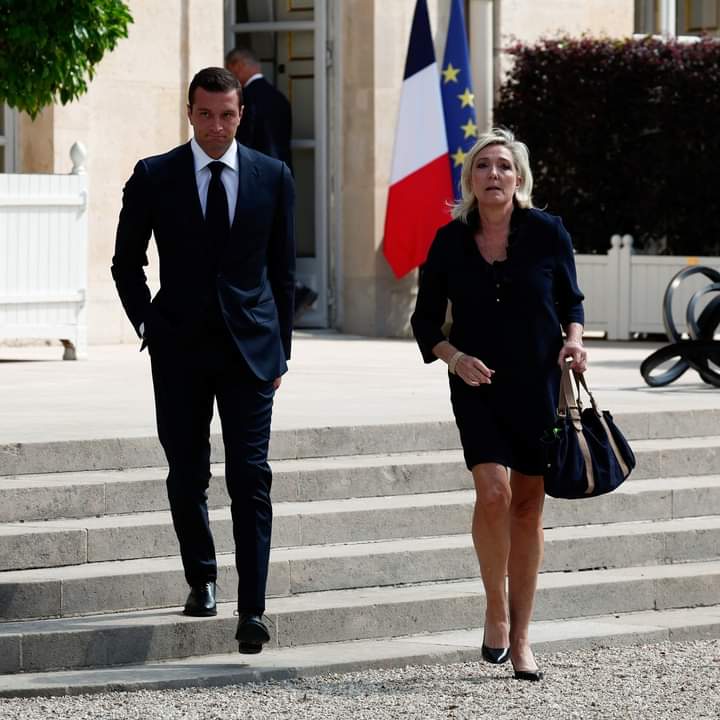French President Emmanuel Macron hosted Marine Le Pen, the leader of the far-right National Rally (RN) party, for unprecedented talks on Monday as the country grapples with a political impasse following July’s inconclusive parliamentary elections. The meeting, which took place behind closed doors at the Élysée Palace, comes as pressure mounts on Macron to resolve the hung parliament situation that has left France without a clear path forward.
Le Pen, accompanied by RN party president Jordan Bardella, entered the Élysée through a rear entrance, avoiding the usual fanfare and media attention. Macron’s absence from the scene raised eyebrows, underscoring the unusual nature of the meeting between the centrist president and his long-time political adversary.
The snap elections called by Macron in July, intended to break the deadlock, only deepened the political crisis. The National Assembly is now divided into three main factions: the left-wing New Popular Front alliance, which secured over 190 seats; Macron’s centrist supporters, holding around 160 seats; and the far-right National Rally, which gained significant ground with approximately 140 seats.
This division has resulted in a hung parliament, forcing Macron to navigate a complex political landscape where his government no longer holds a clear majority. Since 2022, Macron’s camp has operated as a minority government, making it increasingly difficult to pass legislation and implement his policy agenda.
The meeting with Le Pen is seen as a significant moment in French politics, highlighting the growing influence of the far-right and the challenges Macron faces in maintaining control. Le Pen’s National Rally has capitalized on public discontent with Macron’s leadership, particularly on issues such as immigration, security, and the economy, gaining traction in regions that have traditionally been left-leaning.
While the content of the discussions between Macron and Le Pen remains undisclosed, the mere fact of their meeting is indicative of the shifting political dynamics in France. Macron, known for his staunch opposition to the far-right, now finds himself in a position where he must engage with Le Pen and her party, signaling a potential recalibration of his approach to governance.
The ongoing deadlock in the National Assembly has sparked concerns about France’s ability to effectively address pressing issues, including economic recovery, social inequality, and international relations. Without a clear majority, Macron’s government faces an uphill battle in pushing through reforms and maintaining political stability.
As France watches closely, the outcome of this political standoff remains uncertain. Macron’s next move—whether appointing a new prime minister or seeking further dialogue with opposition leaders—will be crucial in determining the country’s future direction.




